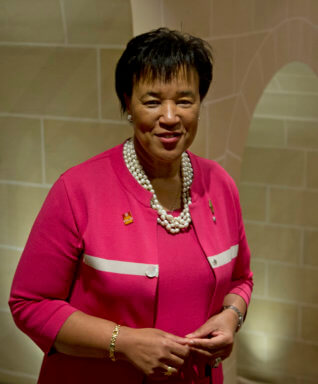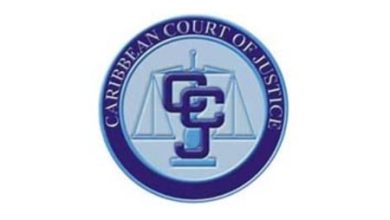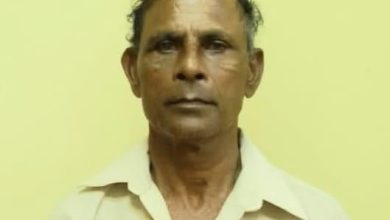CARICOM INTRIGUE

Many would remember the bitter fight, recently, between Jamaica’s Kamina Johnson-Smith and British Baroness Patricia Scotland for the position of secretary general of the 56-nation Commonwealth grouping but many don’t appear to know how and why Scotland prevailed against her late entry Jamaican rival.
Until Jamaican Prime Minister Andrew Holness had inserted his foreign minister into the race, Dominica-born Scotland was basically the front runner for the position as she had no serious rivals. CARICOM leaders meeting in Belize earlier this year, had almost unanimously decided to back the Baroness to complete her COVID-interrupted term. Scotland was born in left Dominica but left for England as a toddler where she became a member of parliament and held a few senior positions both in government and the legislature.
Then Jamaica dropped the bombshell, naming Johnson-Smith as another CARICOM candidate, triggering political and diplomatic consternation in the 15-nation bloc as many governments were quietly arguing that Jamaica was clearly doing the bidding of Britain and other western nations which wanted Scotland out, cooperating with London at the expense of regional unity.
But as Sir Ronald Sanders, Guyana-born, Antiguan Ambassador to the US wrote in a recent regional column, the British and the west had almost prevailed in getting their candidate — Johnson-Smith-in had it not been for the support of more than 20 African nations which backed Scotland for their own self-interest reasons. Scotland beat Johnson-Smith 27-24 largely on the back of African nations and some from the Caribbean.
Scotland had been elected and allowed to serve out the two remaining years of her four-year term because there were no leaders’ summit in the height of the COVID pandemic. Most secretaries general are allowed to serve two consecutive, four-year terms.
Sanders contended that the race was won by Africa and rather than the Caribbean as if the Jamaican foreign minister had beaten Scotland she would have been entitled to serve a full four-year term rather than the two remaining years which Scotland has. Therefore, Johnson-Smith’s term “would have been for a four-year one, ending in 2026 with the possibility of another term to 2030,” meaning Africa which is next in line to hold the SG’s chair would have had to wait until 2030 to occupy it,” Sanders said.
“The election of an African candidate in 2024 is now almost a foregone conclusion, especially as, at Kigali, (the summit last month in Rwanda) two more African states — Gabon and Togo — were admitted to membership, creating a bloc of 21 states. So even if Africa does not agree on a single candidate, what is certain is that the candidates for the post will all come from Africa,” he wrote.
Some regional governments like Trinidad say they expressly regard Scotland as British rather than a Caribbean national as all her formative and important years have been in the United Kingdom to which she has nationalistic allegiances. Some made it plain they were going for the Jamaican.
In the lead up to the late June summit, CARICOM had tried to win consensus but Jamaica stood firm behind its candidate to the very end.
Commenting on the situation after the race, former Jamaican ambassador to the United Nations, Curtis Ward not only thinks that the backing for Johnson-Smith had been blighted by the open support of British Prime Minister Boris Johnson but also because Africa could not trust the Caribbean to complete Scotland’s last two years if she had lost to the Jamaican.
“Africa clearly did not trust Jamaica to go beyond an initial four years,” he told the Gleaner newspaper recently.





